The School of Education will work with Durham Public Schools to recruit and train teachers from underrepresented groups to work in high-needs schools under a new $4.8 million grant funded by the U.S. Department of Education.
The five-year teacher residency project — called “Diverse and Resilient Educators Advised through Mentorship,” or UNC DREAM — seeks to recruit, educate and place 40 diverse teachers into high-needs schools in Durham and provide them with a unique set of mentoring and other supports to help them thrive during their first years and then persist in the profession.
“We are thrilled that, in partnership with Durham Public Schools, the School of Education won this highly competitive award to build and resource a highly innovative recruitment, residency, licensure and retention program for teachers,” said Fouad Abd-El-Khalick, dean of the School of Education.
“The program aims to increase the number of teachers from underrepresented groups who will serve the needs of some of the most deserving students, schools and communities in the district,” he said. “Our faculty, together with our partners at Durham Public Schools, offer a unique combination of expertise and a history of collaboration that I’m confident will lead to this initiative’s success.”
The project is funded by the Department of Education’s Effective Educator Development Grant Program, which is aimed at improving student achievement, elevating the quality of the teacher workforce, and recruiting highly qualified teachers.
The project will recruit pre-service teachers, then support them through a revised Master of Arts in Teaching curriculum, followed by a unique combination of mentoring and peer supports that are designed to help the new teachers successfully transition into their first years of teaching. The mentoring supports are built from a joint UNC-Durham Public Schools program designed to help new teachers achieve success in their first years of teaching.
Funding innovative teacher preparation efforts
Recruitment into the UNC DREAM program will be supported by grant funds that will provide $25,000 stipends for each participating pre-service teacher. Under an arrangement with Durham Public Schools, UNC DREAM teachers are expected to be offered teaching positions in Durham schools, in which they will then engage in a three-year program of professional development activities aimed at helping them persist in the field and in making them teacher leaders in their schools. 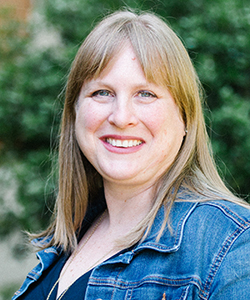
“UNC DREAM promises to provide a pathway through which we can recruit diverse pre-service teachers and provide them with support as newly hired teachers in Durham Public Schools to increase retention rates in and beyond the first three years of induction,” said Kristin Papoi, program director for the Master of Arts in Teaching program and the principal investigator for the project.
Other School of Education faculty participating in the project include Dorothy Espelage, Jocelyn Glazier, Diana Lys, and Esther Ohito.
Project partners also include UNC’s College of Arts and Sciences and the Institute for the Study of the Americas, the N.C. Department of Public Instruction’s Integrated Academic and Behavior Systems Division, and LatinxEd, an outreach program supported by the School of Education.
Addressing critical needs
The UNC DREAM project has four main objectives:
-
1. Recruit racially and ethnically diverse pre-service teachers, with a focus on Latino/a teachers, to work in high-needs areas of elementary and special education in Durham schools.
2. Provide coursework and fieldwork embedded in schools in low-income neighborhoods of Durham federally classified as “Quality Opportunity Zones,” with an instructional emphasis on “transformative social and emotional learning,” or transformative SEL.
3. Improve beginning teacher induction into their careers through professional development in which UNC DREAM teachers participate in mentoring and learning communities and in “affinity caucuses” aimed at equipping the teachers with skills, dispositions and knowledge necessary for effectively teaching racially and ethnically diverse student bodies.
4. Increase retention of UNC DREAM teachers beyond their induction years by supporting continued use of affinity caucuses and teacher leadership opportunities that emphasize culturally sustaining best practices for teaching diverse students.
During the first year of the program, the School of Education will seek to widen its recruitment efforts with the aim of recruiting students into its MAT program from Latino/a and other underrepresented groups. The effort recognizes the nationwide lack of diversity among teacher candidates, including at UNC-Chapel Hill where Black and Latino/a teacher candidates are underrepresented in comparison to Black and Latino/a student representation in the overall student body.
North Carolina faces a recruitment shortage of teachers of color at a time of growing understanding that teachers of color have positive influence on the academic outcomes among students of color.
Thirty-eight percent of students in the state are of color, but only 17% of teachers are Black or Latino/a. The gap between the percentage of Latinx teachers and students is larger than for any other racial or ethnic group.
The importance of transformative SEL
Faculty who lead the School’s MAT program will embark on a curriculum revision that will incorporate a transformative SEL framework into its courses and fieldwork, as the N.C. Department of Public Instruction has identified SEL training as a top priority for students and educators.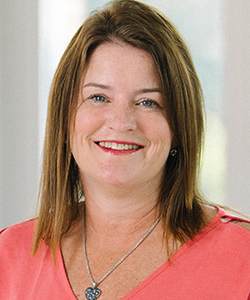
Through UNC DREAM coursework, induction and professional development, UNC DREAM program participants will develop core competencies in self-awareness, self-management, social awareness, relationship skills, and responsible decision making. Additionally, transformative SEL training will help UNC DREAM residents learn how to build strong relationships with students, parents and other school community members and to learn to identify and examine causes of inequities, and to develop collaborative solutions to community problems.
SEL and transformative SEL will be incorporated throughout the UNC DREAM course and clinical work, particularly in the yearlong experiential fieldwork component of the program.
“Social and emotional learning has been proven highly successful in helping educators to manage difficulties they encounter in the classroom and to promote academic success among students, while also fostering positive teacher-student relationships,” said Espelage, the project co-principal investigator who will lead efforts to infuse transformative SEL content throughout the program.
“I anticipate that transformative SEL with a focus on addressing inequities in the classroom will be a powerful component of this program that will resonate with UNC DREAM participants and their students,” she said.
Building, extending collaboration
The UNC DREAM program builds on a 25-year history of collaboration between the School of Education and Durham Public Schools, including a program called Partnership for Authentic Communities of Educators, or PACE.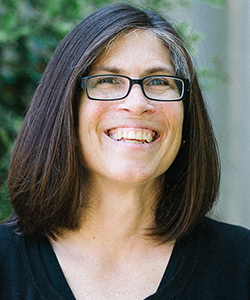
PACE, led by faculty member Jocelyn Glazier, has worked since 2018 to provide supports for pre-service teachers and early-career teachers in Durham by building networks that connect them with each other and with experienced teacher-mentors with the objective of easing the transition into teaching careers.
PACE is designed and led by Durham Public School’s “full release mentors” Jennifer Petty and Christine Joyce, who will incorporate PACE practices within the UNC DREAM model. Other Durham Public Schools administrators involved in the project are Kim Hager, senior executive director for Human Resource Services, and Dietrich Danner, executive director for professional learning and federal programs.
“By building and sustaining networks that connect diverse pre-service teachers, beginning teachers and experienced teachers we can continue to create powerful communities of learners who support one another through their stages of professional development,” Glazier said. 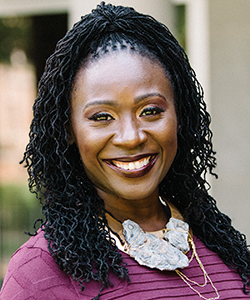
The PACE model will be one of the foundational components of the UNC DREAM program, along with the establishment of “affinity caucuses” in which UNC DREAM residents will share and learn from others’ experiences, providing a network of ongoing support through the teachers’ initial years of work.
Ohito, who will guide the use of the affinity caucuses, added: “Participation in affinity caucuses, through small group meetings and other activities, will provide important supports that should help diverse UNC DREAM residents in their early years of teaching and help them persist in the field.”
Looking ahead
The UNC DREAM residency project is expected to have long-lasting effects on the School of Education’s primary teacher-preparation avenue — the Master of Arts in Teaching program, said Lys, assistant dean for educator education and accreditation and a co-principal investigator who will lead evaluation of the project. 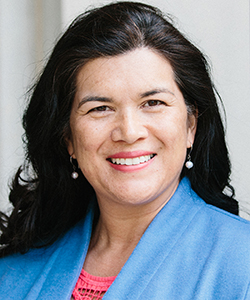
“We anticipate that what we learn through building this initiative will inform ongoing efforts to continuously improve our teacher preparation programs,” Lys said.
Personnel, including the participating Durham Public Schools mentor teachers, hope to be able to continue to build on established relationships to continue UNC DREAM residency activities, possibly moving more of the MAT’s student programming into the UNC DREAM residency model, organizers said.
“We’re very excited to have received this grant support to launch enhancements to our MAT to create a teacher residency model that will help Durham Public Schools address a critical need,” Papoi said. “We can’t wait to get started.”